Molly MacGregor / 07 December 2021
We’re excited to introduce these new elements of Juralio, to help you manage your work better than ever:
- Milestones
- Risk labels – with traffic light colours
- Workflow labels – for capturing things like “on hold” or “under review”
- Hashtags – with a wide range of uses
♢Milestones: high-level progress indicators
Milestones represent a significant event in your matter. They help you monitor and report on whether things are progressing, and to see and manage problems.
Examples of common milestones:
- Kickoff meeting
- Key deliverables finalised
- Start or end of an important stage of work
- Signature of an agreement
- Completion (closing) of a transaction
- Release of a new product or service
🚦Risk labels
Our risk labels are paired with a traffic light system so you can easily grasp issues and see them on maps:
Red – requires immediate attention
Amber – potential issues / assistance needed
Green – on target
We’ve pre-set some common risk types (e.g. budget, staffing, timing).
🏷Workflow labels
Juralio tasks can have three main statuses: not started, in progress and done.
There is also a fourth status for not required tasks.
Statuses and dates are logically connected within task trees (e.g. a ‘done’ parent task cannot have a ‘not started’ subtask).
To allow greater nuance while keeping things simple for those who don’t need that nuance, we’ve introduced workflow labels. These allow you to flag that (e.g.) an ‘in progress’ task is ‘on hold’ or ‘awaiting client review’ or that a ‘not started’ task is ‘blocked’.
🛠 Modifying risk and workflow labels
Your organisation admins can change these labels for your organisation as a whole.
At matter level, a matter admin can disable some or all of these pre-sets and add some matter-specific labels.
Any matter editor can apply these labels to any task within the matter.
#️⃣ Hashtags
Hashtags allow you to categorise tasks without restriction.
In the labels area within a task, type the intended hashtag and follow the prompts.
Examples:
- Flagging things for a particular purpose (#annualreview)
- Signal where external teams are involved (#companyZ)
- Flag where another stakeholder’s input is required (#askfinance)
Best practices include:
- Consistency: use existing hashtags where possible rather than adding similar ones
- Simplicity: avoid sub-dividing concepts in ways that are unlikely to be used
- Purposeful: only add hashtags with a clear purpose (helping you or someone to do something)
🔦Highlighting labelled or hashtagged tasks
Use the controls at the top right of the taskmap and roadmap to highlight tasks with the labels or hashtags of interest.
You can also toggle between standard and detailed views. Standard is good if you don’t want to distract people with labels and hashtags.
–
Photo by Ulvi Safari on Unsplash

